Editor’s note:Brittany Hobson
Karyn Pugliese
APTN News
Sprawling more than 7,000 acres and home to 4,500 people the community of St. Theresa Point is an isolated wilderness. The remote community is surrounded by the several tiny islands that make up Manitoba’s Island Lake region.
Homes in the community are sometimes spread a part by 20 feet of trees, bush and wildlife.
It seems peaceful, but some homes here know violence. And this community is not alone.
According to a 2014 Statistics Canada report Aboriginal women are three times more likely to be victimized by current or former partners than non-Aboriginal women.
In St. Theresa Point some women are beginning to talk about it.
On Feb. 26, 2010 Helena Wood’s 15-year-old daughter Cassandra Wood died by suicide. Her body was found a day later in a garage near the high school in the community.
Helena believes witnessing 15 years of family violence overwhelmed Cassandra.
“I’m not losing another daughter because of domestic violence. Never again,” Helena told APTN News from her home in Steinbach, Man.
“There were lots of signs. Lots of sayings but nobody heard her. Nobody heard her. Not even her friends.”
Helena is the first to admit she also failed to see the signs. It’s something that she has to live with to this day. Looking back on the events leading up to Cassandra’s death she says she was in survival mode. The well-being of her children fell by the way side.
“I went straight down emotionally and physically,” she said. “Physically my beat ups caught up to me, so mentally I went straight down.”
“What did I do? I drank for many years. Then I became addicted.”
It’s hard for Helena to talk about the abuse, addictions and the death of Cassandra. It’s taken her eight years.
Helena was born and raised in St. Theresa Point. The 39-year-old met Cassandra’s father while the two were in high school. APTN has decided not to publish his name. She became pregnant with Cassandra at the age of 16. The two married once she turned 18.
Helena says the beatings started early on. She says she tried to leave multiple times often seeking solace at her parent’s house in the community, but friends and family would convince her to go back.
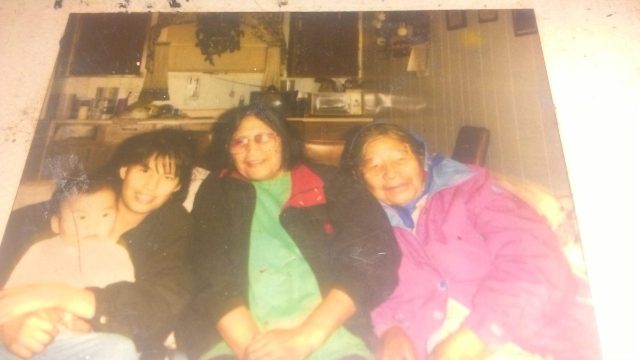
Today, the community practices both traditional spirituality and Christianity, but this wasn’t always the case. In August 1909 elders living in the area now known as St. Theresa Point signed on to the Treaty 5 adhesion. In the late 1920s and early 1930s people began to move away from the area when settlers began to occupy the land, and with them they brought different religions. In 1969 the area was separated into four communities with St. Theresa Point being the largest. Much of that area practiced Roman Catholic ideology. It remains heavily engrained in daily life today. Many believe divorce is not an option.
“Everybody telling me [it’s] the Native way,” said Helena. “You have to go back to your husband. You have to.”
Island Lake First Nations Family Services (ILFNFS) first intervened in December 2008 according to a special investigative report commissioned by Manitoba’s Children’s Advocate Office. Cassandra told local health workers she didn’t want to go home because of the violence.
Helena and Cassandra’s father met with ILFNFS and representatives from health services and justice. Helena says the agency would never meet with her alone. She says before meetings Cassandra’s father would threaten her if she spoke out about the violence.
Scared for her life, Helena remained quiet.
After Cassandra’s death Helena’s husband promised to change his ways. This lasted for a month. Then the beatings started again. Shortly after her second daughter Jewel began to cut herself. She was sent to Winnipeg with Helena to see a counselor. Through the counselor Helena learned about domestic violence and the resources available for women and families.
In August 2010, six months after Cassandra’s death, Helena made the decision to leave the community for Winnipeg.
Waiting at the other end was her cousin Judy Klassen.
Klassen says victims get to a point where violence seems normal.
“You don’t feel like your life is in danger. Oh, this wasn’t so bad,” she told APTN. “It’s a weird mental start that you’re in where self-preservation just doesn’t exist.”
Klassen knows this first hand. She is also a victim of domestic violence. She recalled one night she was hurt so bad she feared her partner would kill her.
“I had to leave my kids and that was the hardest thing. I couldn’t run with them. I couldn’t carry myself,” she said.
“It felt like my arms were broken. It felt like my legs were broken. But, it really felt like I was going to be killed if I stayed there.”
She was eventually able to reach help. Child and family services safely removed the kids from the home and returned them to her.
Klassen is now a Liberal MLA for the Keewatinook riding, which includes her home community of St. Theresa Point.
Last November she shared her experience with the Manitoba legislature using the moment to also call for more resources for women experiencing family violence.
“I was six-months pregnant when my partner hit me so hard to the ground only to be found by a patrolling RCMP a little while later,” she said. “I managed to survive that episode in my life and I proudly stand here today and speak out and speak up for women [who] still can’t speak for themselves.”
Klassen isn’t the only one in her family who has experienced spousal violence. Her older sister Stephanie Wood was in a long-term relationship with a partner she says abused her physically and emotionally.
She says the moment to leave her abuser came when she realized she had nothing left to give.
“I’d like to say that I stood up and I said no more of this and I walked out all powerful,” Wood said. “It wasn’t like that at all. It was more I was completely broken. Everything that I had it was like I had already spent it all.”
Violence in the community has been a hidden issue for many years. Some call it a ‘dirty little secret.’ Women can be seen walking with black eyes or bandaged arms and there is little nurses or mental health workers can do when people won’t talk about the problem.
Illa Harper is a nurse in St. Theresa Point. She often treats victims, but says there isn’t much else she can do. For example, there are no shelters in the community.
“There’s no resources like [other] homes here,” she told APTN from St. Theresa Point. “I feel scared when I send them home.”
Leaving the violence often means leaving the community. This is easier talked about than done. In the summer St. Theresa Point is only accessible by plane. In the winter people can drive in and out via a winter ice road.
“I can’t medivac them out because they’re [at] risk for violence,” said Harper. “So what do they do if they [want to] escape out of the community and they can’t even afford plane fare? If they have five kids and themselves that’s about $2,000.”
But, Helena and her kids got out. She called a Winnipeg shelter telling them her situation. The shelter paid for transportation out of the community.
“I left under the rug. I just decided like that,” Helena recalls. “I called Osborne House and just told them what my situation was. I said I need to get out.”
Once Helena arrived in Winnipeg she stayed at the shelter for a couple weeks before moving to Steinbach to stay with Klassen.
Klassen remembers picking up the phone one day only to hear Helena on the other line with news she had left the community with the kids and needed a place to stay. Klassen drove into the city and picked them up.
“It was so heart wrenching to see my nieces and nephews bewildered faces,” she said. “Trying to offer reassurance that auntie’s going to help as much as possible. It was hard for them to trust coming from a home like that where they saw violence every day.”
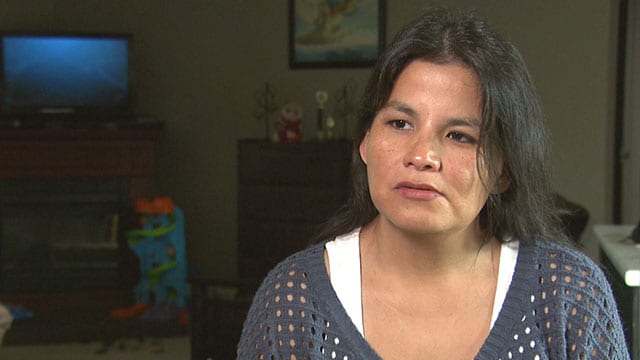
Helena learned problems don’t just go away when women leave the community. After settling in Steinbach she continued to use booze to help cope with the death of Cassandra. She needed programs but they seemed impossible to access.
Helena’s drinking strained her relationship with her two children, Jewel and Austin. The kids were still reeling from the death of their sister and Helena was struggling to adapt to life as a single mother. Child and Family Services eventually apprehended the children because of the drinking.
It’s been eight years since Helena left. She is on a healing journey, but some wounds remain. She was once choked so hard that to this day she can barely swallow.
In her home in Steinbach Helena fries some eggs and boils some potatoes. Once the food is cooked she throws it into a blender.
“I blend my food. I puree my food like baby food,” she said.
“I can’t swallow solids. I can’t push it down. It feels like it’s stuck there but I can’t push it down. I don’t have the ability to push it down.”
Helena says specialists have told her there is no physical damage to her throat and equate the trouble of swallowing with a symptom of post-traumatic stress disorder.
Part of Helena’s healing journey includes sharing her story. She hopes shining a light on domestic violence will bring some change to her community.
“Still today there is no help out there. I haven’t see any changes,” said Helena.
“[The community] only acts in a crisis. If one is already too late or [there’s] a really wounded person.”
Helena hopes to one day see a shelter in the St. Theresa Point, but most of all she wants women to know there are resources outside the community. And, there are people, including her, who will do their best to help women get out.
“You’re not alone. There is hope. You have to get out for yourself and children. Break the silence.”




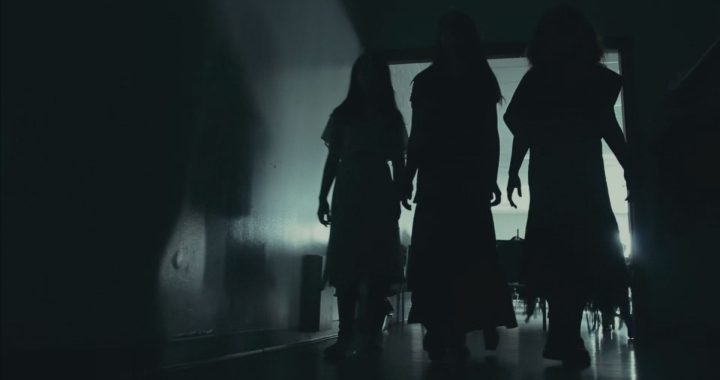

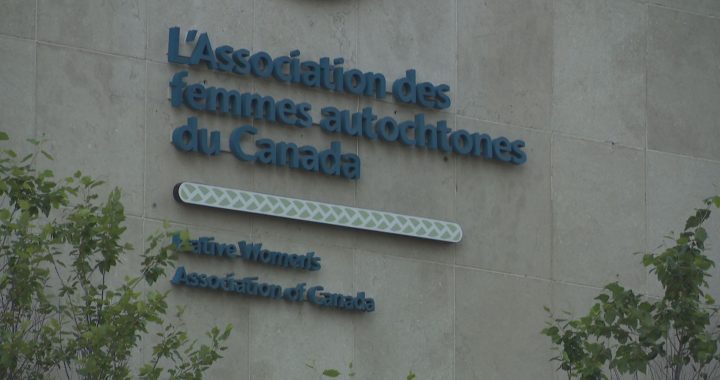
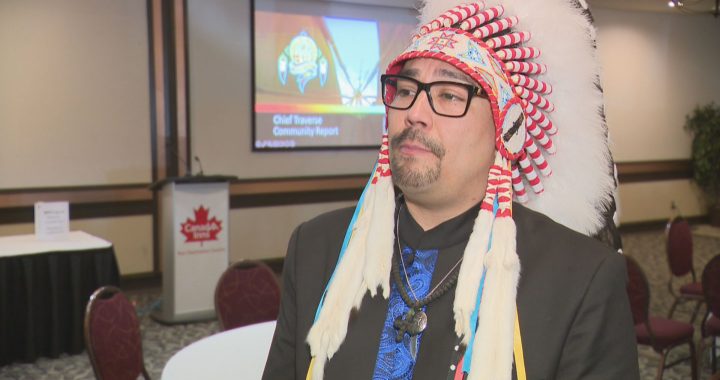
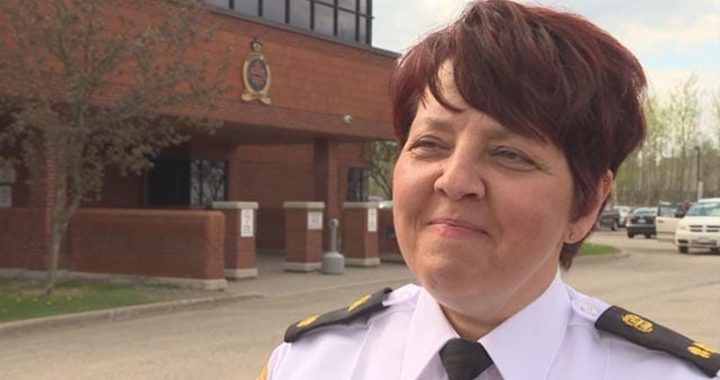
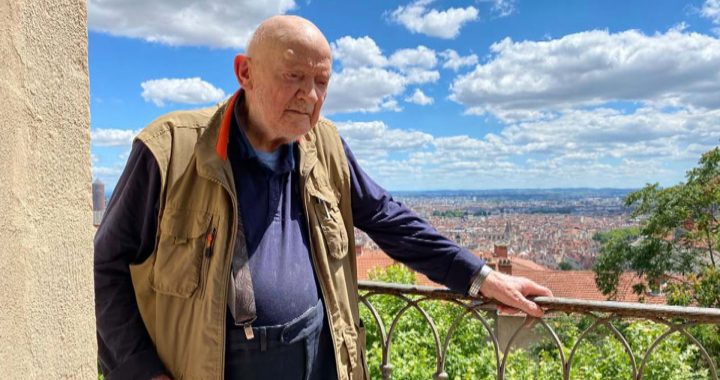
Helena, I will pray for you. Its all I know to do to help you. I pray that you get the help you want and need and also the strength to overcome this. I pray that your remaining children see and understand what you went through and what you have done for them. It may be too late for Cassandra, but its not too late for them!! Be strong!! Please!! Your two other children need you to be strong for them!! Most of all, forgive yourself. That is when the healing will really begin.
Pam
Helena, I will pray for you. Its all I know to do to help you. I pray that you get the help you want and need and also the strength to overcome this. I pray that your remaining children see and understand what you went through and what you have done for them. It may be too late for Cassandra, but its not too late for them!! Be strong!! Please!! Your two other children need you to be strong for them!! Most of all, forgive yourself. That is when the healing will really begin.
Pam
What a kind heart you and Helen, God Bless!
To Helena. There are people who would help if given the chance, I and my wife Helen are just two of them. Please email me if you need help, and if it is in my ability to do so… Abe
find me on facebook
What a kind heart you and Helen, God Bless!
To Helena. There are people who would help if given the chance, I and my wife Helen are just two of them. Please email me if you need help, and if it is in my ability to do so… Abe
find me on facebook
It has been traumatic for me to read this. I am the son of parents that drank and fought often. We were told by my parents to never discuss what happened in our home. My mom was in Residential School and was greatly affected there by the abuse. Later I realized I too was suffering from the trama experienced by my mom.
It has been traumatic for me to read this. I am the son of parents that drank and fought often. We were told by my parents to never discuss what happened in our home. My mom was in Residential School and was greatly affected there by the abuse. Later I realized I too was suffering from the trama experienced by my mom.